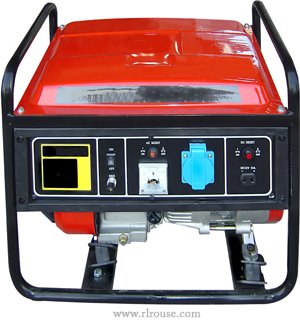 If you live in an area that is prone to frequent power outages you have probably given serious thought to buying a generator. I purchased and installed one at my home several years ago and I can tell you that it’s a real blessing having power when all of your neighbors are sitting in the dark and shivering in the cold.
If you live in an area that is prone to frequent power outages you have probably given serious thought to buying a generator. I purchased and installed one at my home several years ago and I can tell you that it’s a real blessing having power when all of your neighbors are sitting in the dark and shivering in the cold.
Backup generators typically come in two varieties: portable and permanently installed. Portable models have the advantages of being less expensive and, well…portable. They also have their disadvantages as well. Most portable generators run on either gasoline or diesel, both of which are expensive and can be somewhat dangerous unless the unit is properly set up and used.
In contrast, permanently installed generators typically run on propane or natural gas which tend to be safer and cleaner burning than gasoline. Permanent models are also the best choice for powering an entire house because once they are connected to the home’s wiring there is really little else to do except for routine maintenance. The disadvantages of buying a permanently installed generator are the extra expense involved with purchasing the unit and paying an electrician to do a professional installation (which is strongly recommended).
Deciding how large a generator you need to buy can be a bit tricky. If all you want is a portable model that can supply enough power to run a refrigerator, a television set and a portable electric heater you simply add up the wattage consumed by each and add 20% for a cushion. You should also take into consideration the startup power requirements for the refrigerator.
If you want a generator that can power your entire house, you’ll need to add up the wattages of everything in the house that could possibly be running at the same time, again factoring in the startup wattage of anything that is powered by an electric motor. After you arrive at a total you’ll need to add a 25% cushion just to keep things safe. If you have any questions or are confused about anything discussed here, the dealer you plan to buy your generator from will most likely be happy to help you determine what size generator you need.
And now a now for a few words on safety: DO NOT plug a portable generator directly into one of your house’s electrical outlets. Doing so places your home at great risk for fire and feeds current out onto the electrical grid (not a good thing for several reasons). If in doubt, hire a professional to make the necessary connections for you. The safest way to “do it yourself” are to run heavy duty drop cords directly from the items being powered to the generator’s electrical outlets.
In today’s world a backup power generator is a virtual necessity if you live in an area hit by frequent power outages, especially if they often last for more than just a few hours. A little forethought and preparation can make the difference between buying a generator that will serve you and your family well for many years to come and one that will bring you nothing but endless trouble and frustration.
About the author: Gene Halliday is a home-builder and home improvement expert. He and his crews have built and repaired hundreds of homes during his 18 year career.